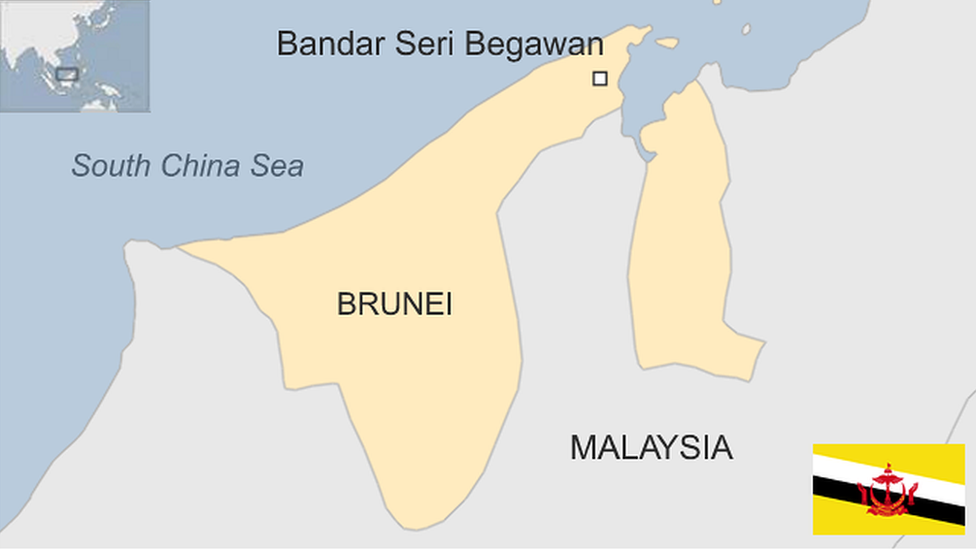Introduction to Brunei: A Glimpse of Rich Heritage and Culture
Nestled on the northern coast of the island of Borneo in Southeast Asia, Brunei Darussalam is a small yet captivating nation that offers a unique blend of tradition and progress. With approximately 450,000 people, Brunei’s rich cultural heritage and deep-rooted Islamic faith have shaped the nation’s identity for centuries.
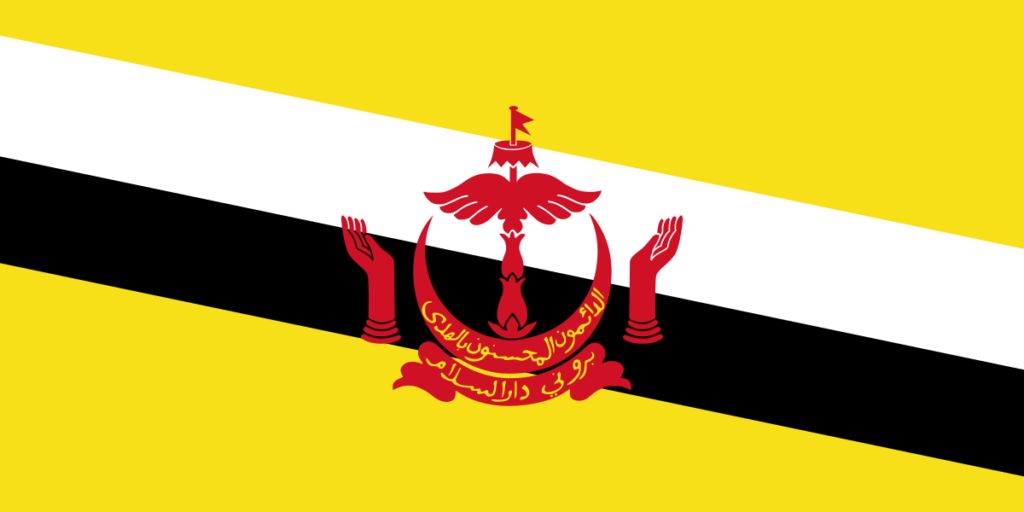
Table of Contents
The Monarchy: A Steadfast Pillar of Bruneian Society
The monarchy forms the core of Brunei’s governance, with Sultan Hassanal Bolkiah, one of the world’s longest-reigning monarchs, leading the way. The Bruneian royal family safeguards the nation’s customs and values. Sultan Hassanal Bolkiah, known for his unwavering dedication to his people’s well-being, demonstrates his commitment through various social and economic initiatives.
Under Sultan Hassanal Bolkiah’s leadership, the Bruneian monarchy remains deeply connected to its people and cultural heritage. The Sultan’s presence and involvement in various cultural events and ceremonies reinforce the importance of tradition in Bruneian society. Sultan Hassanal Bolkiah showcases his profound belief in upholding the country’s rich heritage through his continuous support and patronage of arts, crafts, and cultural preservation.
Furthermore, the Sultan’s focus on the welfare of his citizens is a cornerstone of his reign. Initiatives aimed at enhancing the standard of living, providing quality education, and ensuring accessible healthcare for all demonstrate his commitment to the nation’s well-being. The government’s social safety nets and subsidized services reflect the Sultan’s desire to create a society where everyone can thrive.
Economically, Sultan Hassanal Bolkiah’s policies have been instrumental in steering Brunei toward sustainable growth and development. By diversifying the economy and investing in various sectors, such as education, healthcare, and infrastructure, the Sultan seeks to reduce the nation’s dependence on oil and gas revenue, ensuring Brunei’s stable and prosperous future.
Moreover, the Sultan actively engages with the citizens, listening to their concerns and striving to address their needs. His accessibility and direct interaction with the public exemplify a leadership style that genuinely focuses on understanding and responding to people’s aspirations.
As a result of Sultan Hassanal Bolkiah’s visionary leadership, Brunei continues to thrive and progress while maintaining its unique cultural identity. The monarchy’s enduring presence reinforces a sense of stability and continuity throughout the nation. Sultan Hassanal Bolkiah’s deep-rooted commitment to the welfare and prosperity of his people has solidified his place as a revered and respected leader, both within Brunei and on the international stage.
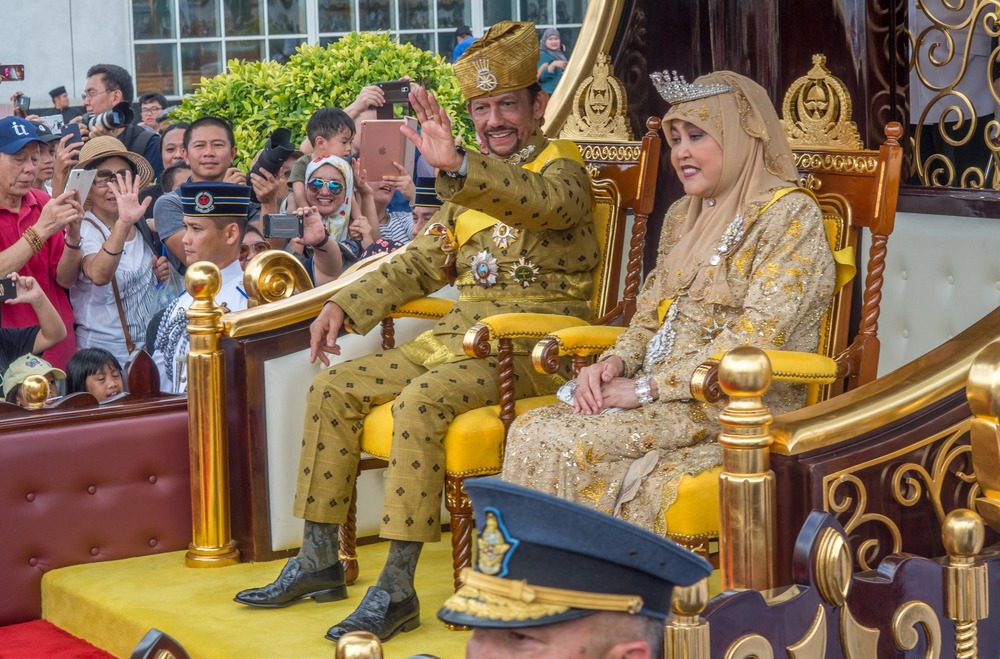
Natural Splendor: Exploring Brunei’s Breathtaking Landscapes
Brunei’s scenic landscapes mesmerize visitors and locals, as lush rainforests, pristine beaches, and mangrove forests grace the country with their natural wonders. The abundant biodiversity and breathtaking vistas have made Brunei a hidden gem for eco-tourists seeking unspoiled environments. The rainforests teem with many flora and fauna, offering nature enthusiasts unparalleled opportunities for exploration and discovery.
One of Brunei’s notable features is its commitment to environmental conservation. The nation takes pride in its well-preserved wildlife sanctuaries and dedicated conservation efforts. These sanctuaries serve as havens for endangered species, safeguarding their habitats and contributing to global conservation initiatives. Brunei’s keen focus on sustainable practices showcases its dedication to striking a harmonious balance between development and preservation.
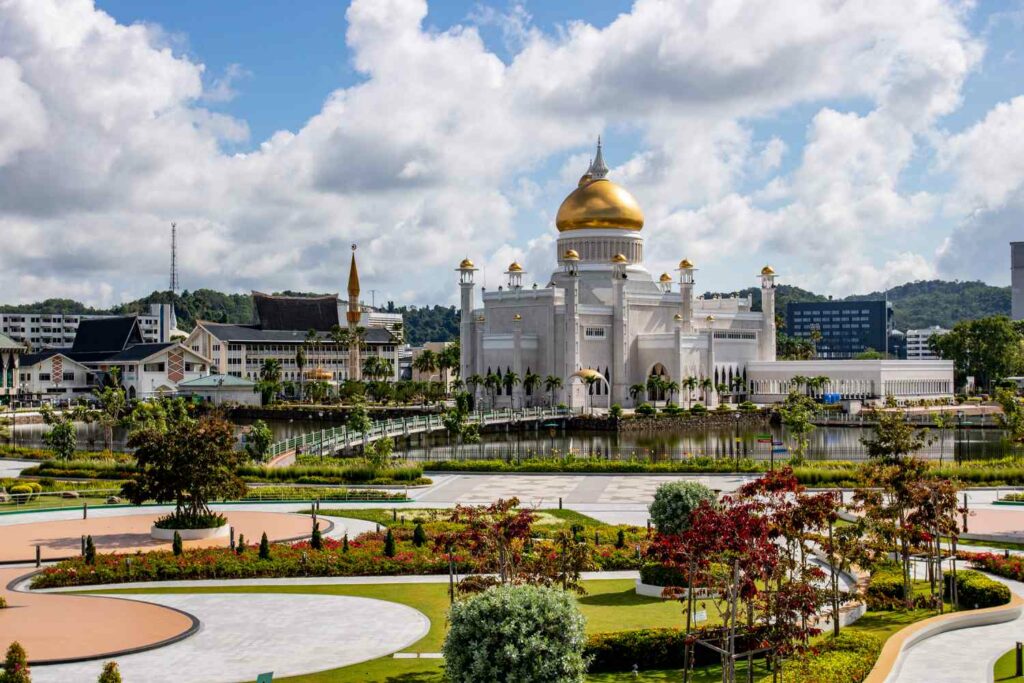
Beyond the terrestrial marvels, Brunei’s coastal regions also astound with their natural beauty. The pristine beaches, kissed by gentle waves, offer serene retreats for relaxation and leisure. Moreover, the intricate mangrove forests lining the coastline serve as essential ecological buffers, protecting the land from erosion and supporting a complex marine ecosystem.
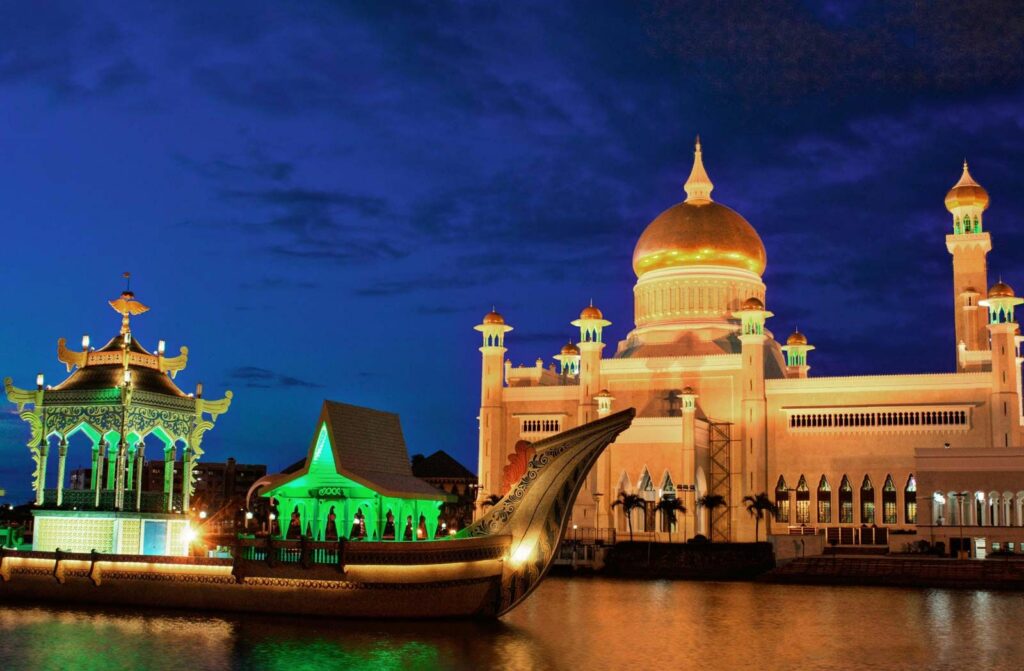
The government of Brunei has recognized the importance of its natural heritage and has taken proactive steps to ensure its longevity. Collaborating with international organizations, Brunei contributes to vital conservation programs and seeks innovative ways to address environmental challenges. These endeavors protect the environment and foster a sense of pride and responsibility among its citizens in safeguarding their country’s natural treasures.
For those seeking a unique and authentic experience, Brunei’s commitment to preserving its natural splendor provides an exceptional opportunity to immerse oneself in a world largely untouched by mass tourism. Whether trekking through dense rainforests, relaxing on tranquil beaches, or observing diverse wildlife in their habitats, visitors to Brunei are sure to encounter a genuinely extraordinary destination that celebrates the harmony between nature, culture, and conservation.
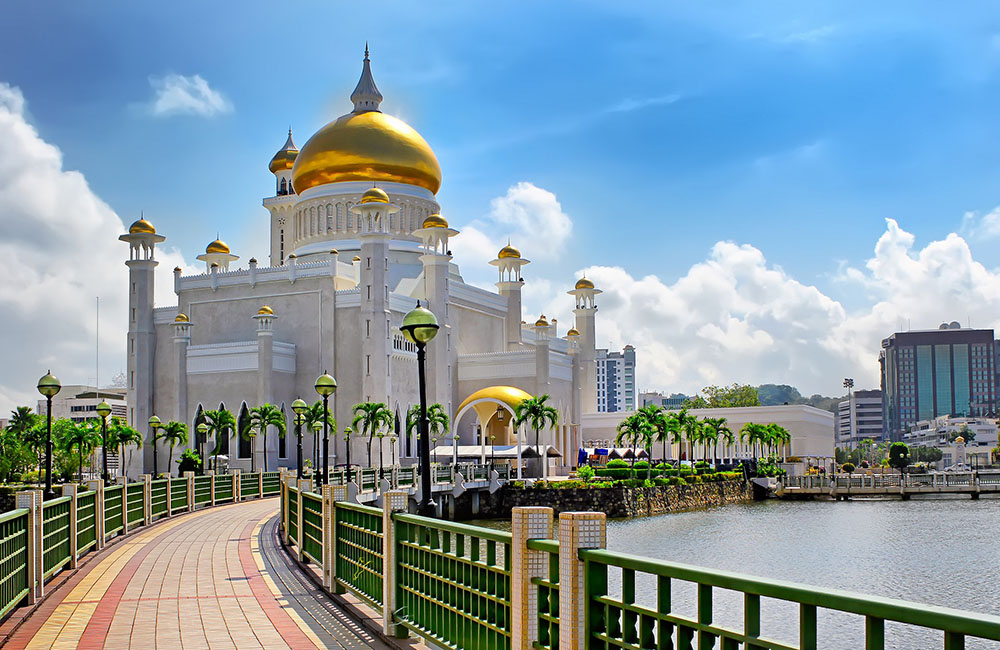
Islamic Traditions: A Harmony of Faith and Daily Life
Islam serves as the state religion in Brunei, and the country actively integrates its religious practices into daily life. Mosques, symbolic of Islamic devotion, punctuate the landscape, providing a serene ambiance for worshippers and visitors alike. The call to prayer, echoing melodiously five times daily, is a gentle reminder of the nation’s unwavering commitment to its faith. Brunei’s ability to harmoniously coexist Islamic values with modernity is a testament to the country’s strong cultural identity and inclusive approach towards religious diversity.
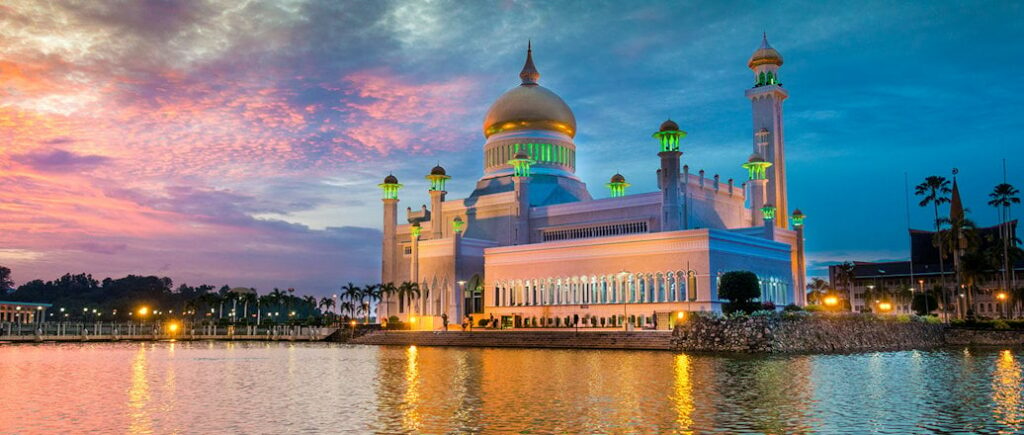
Bruneian society seamlessly integrates Islamic traditions into various aspects of life, evident in both public and private spheres. Designated prayer areas are common in government institutions, businesses, and even homes, highlighting the profound significance of faith in the daily lives of Bruneians. Exemplifying this commitment to cultural heritage, Brunei preserves Islamic architectural marvels, prominently showcased through the awe-inspiring Sultan Omar Ali Saifuddien Mosque—an extraordinary symbol of Islamic artistry and devotion.
Brunei’s social fabric intertwines with Islamic customs and practices, going beyond the architectural wonders that adorn the nation. Islamic rituals infuse local traditions and festivals, elevating the spiritual significance of these events. The holy month of Ramadan, the joyous celebration of Hari Raya Aidilfitri, and the Hajj pilgrimage exemplify how the faith-driven essence pervades throughout the nation.
Moreover, Brunei’s harmonious coexistence of Islamic values and modernity extends to its legal system and governance. The country implements Sharia law with civil law, ensuring that Muslims and non-Muslims are governed by principles that respect individual rights and uphold justice. The government strives to balance religious principles and pursue a progressive society that embraces innovation and inclusivity.
Visitors to Brunei often find themselves immersed in the warm hospitality of the locals, who are proud to share their cultural heritage with the world. Mosques welcome tourists, allowing them to learn about Islamic practices and witness the beauty of the architecture. This openness fosters understanding and appreciation for Brunei’s unique blend of Islamic values and contemporary living.
In conclusion, Brunei’s integration of Islamic practices into daily life reflects its unwavering commitment to its cultural identity and religious heritage. The sight of mosques gracing the landscape and the regular call to prayer exemplifies the nation’s deep-rooted devotion to Islam. This harmonious coexistence of faith and modernity has allowed Brunei to progress while holding firmly to its rich cultural heritage, creating an alluring destination for travelers seeking an authentic encounter with Islamic traditions in Southeast Asia.
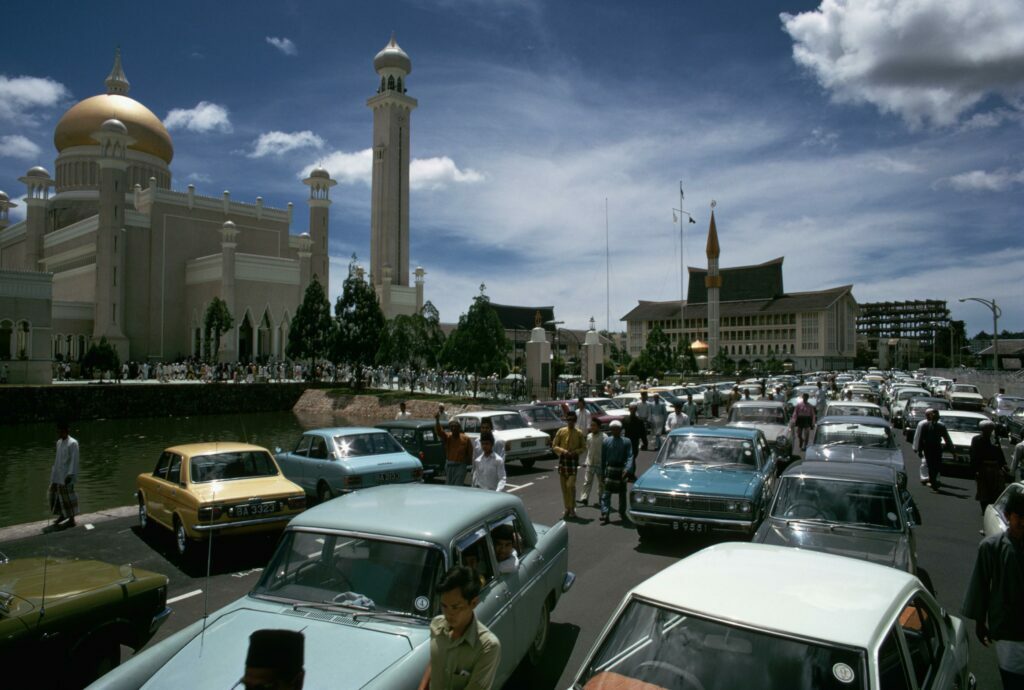
Economic Advancements: Balancing Tradition with Modernity
Brunei, deeply rooted in its cultural heritage, has actively pursued economic development with remarkable strides. The nation’s abundant oil and gas reserves have played a pivotal role in facilitating impressive economic growth. Furthermore, the government’s implementation of prudent fiscal policies has effectively ensured a stable financial environment.
Brunei has fervently committed to diversification, recognizing the importance of safeguarding its economic future. This forward-thinking approach aims to decrease the country’s heavy reliance on oil revenues and foster a resilient and sustainable economy. By exploring alternative industries and investment opportunities, Brunei is positioning itself to navigate potential economic challenges and seize opportunities for growth beyond its traditional resource-based sectors.
In recent years, the nation’s leaders have taken active measures to promote foreign investment, foster technology innovation, and encourage entrepreneurship, aiming to create an ecosystem that actively supports economic diversification. They have introduced initiatives to enhance education and vocational training, aligning the workforce with emerging industries and preparing them to meet the demands of a rapidly evolving global economy.
Brunei intertwines its commitment to economic diversification with its long-term vision of becoming a regional economic hub. The country’s strategic location in Southeast Asia and its stable political environment attract regional trade and investment, making it an appealing destination. Brunei actively forges solid economic ties and positions itself as an essential player in the ASEAN (Association of Southeast Asian Nations) community through partnerships with neighboring countries and active participation in regional economic forums.
Moreover, Brunei’s dedication to sustainability extends beyond its economic pursuits. The nation actively supports environmentally friendly initiatives and invests in renewable energy sources, underlining its commitment to reducing carbon emissions and mitigating the impacts of climate change.
As Brunei continues on its path of economic diversification, the nation remains focused on striking a balance between preserving its cultural heritage and embracing modernity. By cherishing its traditions while embracing innovation, Brunei is well-positioned to chart a prosperous and sustainable future for its people and future generations. The nation’s resolve to adapt, evolve, and lead in a dynamic global landscape ensures that Brunei will continue to be a compelling example of a country successfully embracing the challenges and opportunities of the 21st century.
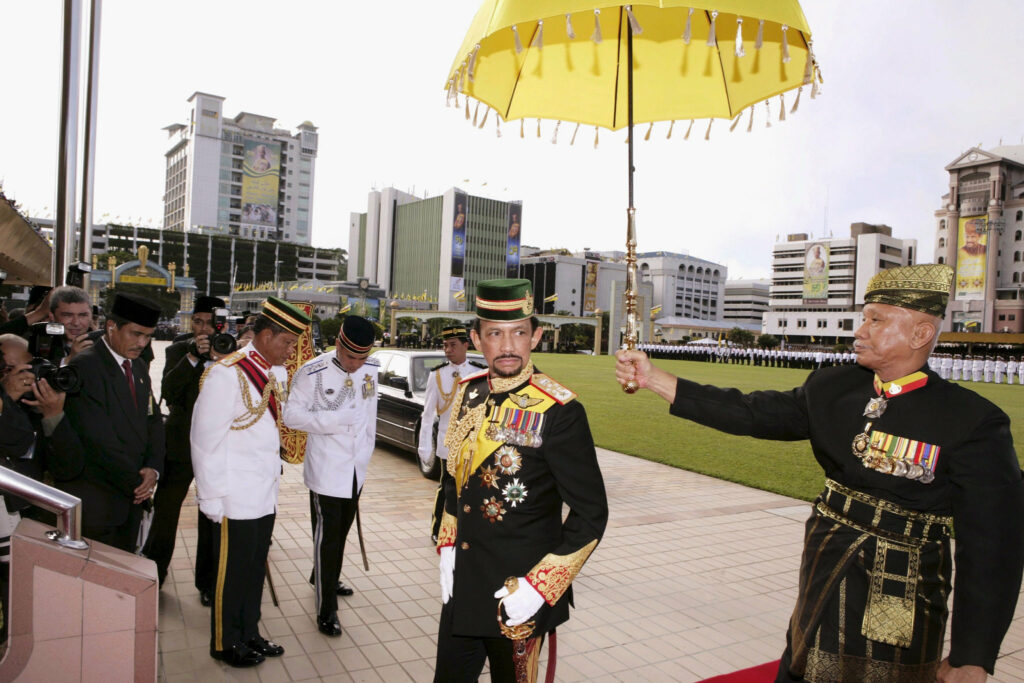
Social Welfare: Brunei’s Commitment to Its People
The Bruneian government prioritizes the welfare of its citizens, actively providing them with comprehensive social safety nets, free healthcare, and education. This commitment ensures citizens have access to essential services and support, enhancing their overall quality of life. Moreover, the government takes further steps to contribute to a high standard of living for the population by offering subsidized housing, utilities, and transportation options. These measures alleviate financial burdens on the citizens and foster a sense of security and well-being within the community.
The government focuses on creating comprehensive social safety nets that catch those facing financial difficulties, unemployment, or other hardships. This initiative involves implementing various social assistance programs and schemes that provide financial aid, food support, and medical care to those in need. Furthermore, by offering free healthcare and education, the government ensures equal personal and professional growth opportunities for all citizens, irrespective of their financial backgrounds.
In addition to these vital support systems, the government’s efforts to offer subsidized housing, utilities, and transportation play a crucial role in enhancing the standard of living for the population. Access to affordable housing helps citizens secure stable and comfortable living spaces, while subsidized utilities such as electricity and water contribute to reducing daily living expenses. Affordable public transportation options ease commuting for citizens and promote a greener environment by encouraging public transit over private vehicles.
Overall, the Bruneian government’s proactive approach to prioritizing the welfare of its citizens through various social and financial support systems reflects a commitment to building a solid and thriving nation. By ensuring access to essential services and easing the financial burden on its citizens, Brunei sets an example of a caring and inclusive society that fosters the well-being and prosperity of its people.
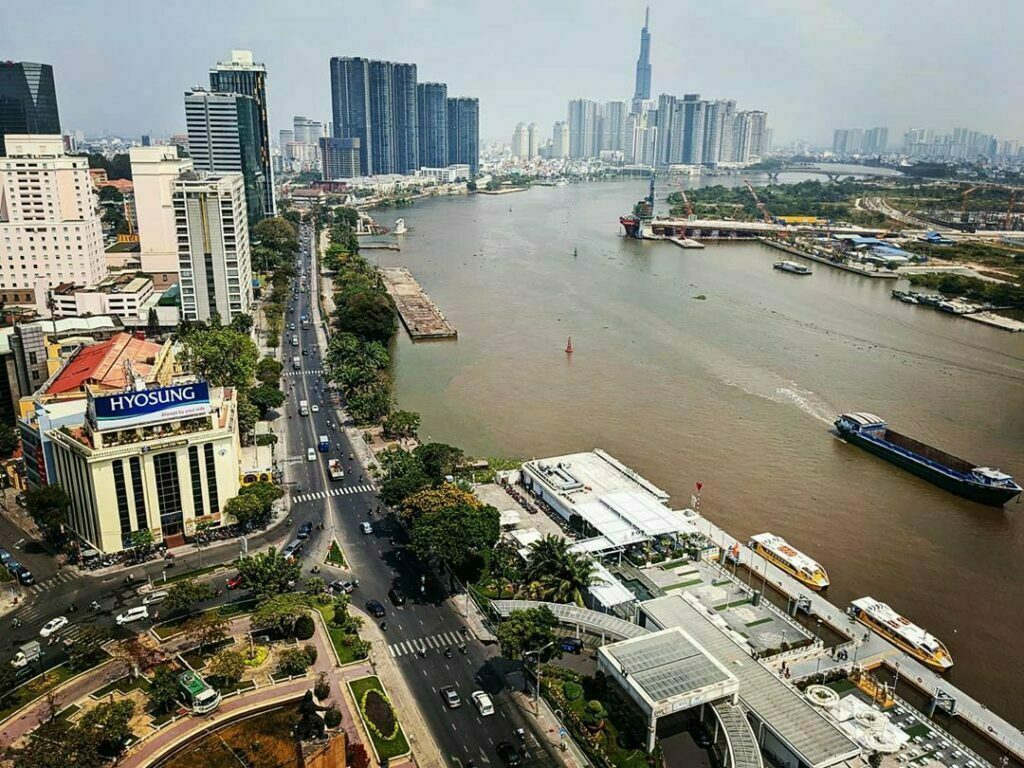
Education and Healthcare: Building a Prosperous Future
Brunei recognizes the crucial role of human capital in achieving sustainable development, leading to substantial investments in education and healthcare. The nation takes pride in its robust education system, which focuses on nurturing the talents and potential of its citizens. Bruneians can access top-notch healthcare services through a network of well-established public facilities, ensuring their well-being and productivity.
Brunei has made remarkable strides in creating an inclusive and forward-looking learning environment in education. The government allocates substantial resources to enhance the quality of education, from early childhood education to tertiary institutions. Brunei aims to equip its citizens with the knowledge and skills needed to thrive in an ever-evolving global landscape by providing access to modern educational tools and qualified educators.
Moreover, Brunei extends its commitment to education beyond the traditional classroom setting. The nation actively encourages research and innovation, fostering a culture of intellectual curiosity and creativity. Brunei readily offers scholarships and grants to support students pursuing education both domestically and internationally, thereby promoting excellence and enabling the country to benefit from a well-educated and capable workforce.
In parallel, Brunei’s healthcare system serves as a pillar of strength, assuring the health and well-being of its citizens. An extensive network of public healthcare facilities, including hospitals, clinics, and specialized medical centers, provides accessible and quality healthcare services. The government, recognizing the significance of preventive care, actively promotes healthy lifestyles and disease prevention initiatives, aiming to alleviate the burden on the healthcare system.
Furthermore, Brunei’s healthcare system emphasizes a patient-centric approach, aiming to offer compassionate and personalized care to its citizens. The country’s medical professionals dedicate themselves to providing cutting-edge treatments and employing the latest medical technologies to deliver world-class healthcare services.
By investing significantly in education and healthcare, Brunei firmly believes that human capital is the foundation of a prosperous and sustainable future. These investments not only elevate the standard of living for its citizens but also bolster the nation’s resilience and competitiveness on the global stage. As Brunei continues to march towards progress, it does so with the assurance that a well-educated and healthy populace is the key to unlocking its full potential and securing a prosperous future for generations to come.
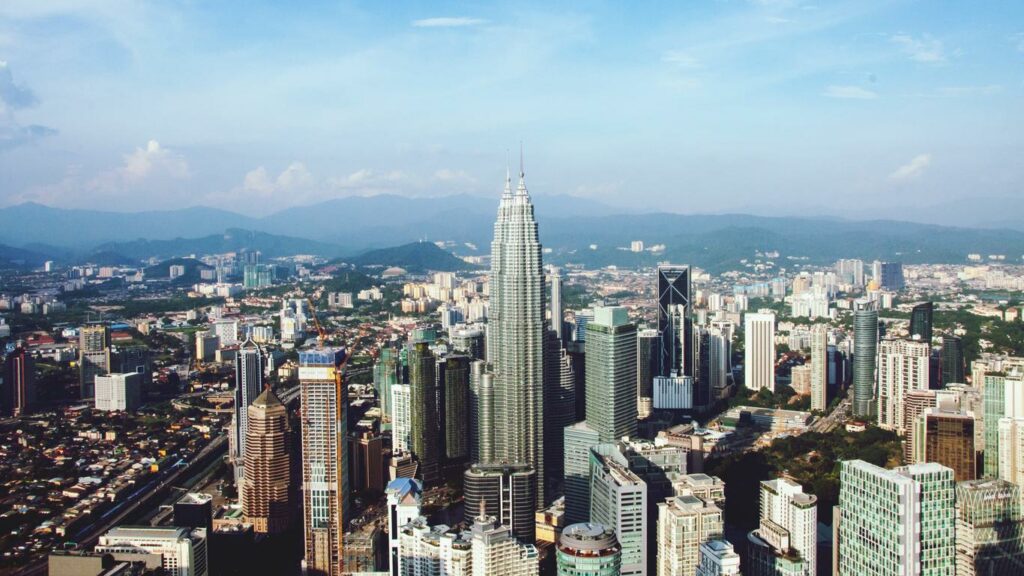
Sustainable Initiatives: Preserving Brunei’s Pristine Environment
Brunei actively commits to environmental conservation and takes a proactive role in international efforts to combat climate change. The nation spearheads a range of initiatives to preserve its pristine environment and ensure a sustainable future. Notably, extensive reforestation projects are led by Brunei, aiming to restore and protect its precious rainforests. These efforts contribute to biodiversity conservation and play a vital role in carbon sequestration, effectively mitigating the impact of greenhouse gas emissions.
Moreover, wildlife protection is a top priority for Brunei, as it recognizes the crucial role of its unique flora and fauna in maintaining ecological balance. The nation establishes protected areas and wildlife sanctuaries to safeguard vulnerable species, ensuring their survival for generations. By investing in research and conservation programs, Brunei aims to understand its diverse ecosystem better and implement targeted measures to address environmental challenges.
In the energy sector, Brunei is a staunch advocate of sustainable practices. The nation is actively exploring renewable energy sources, such as solar and hydroelectric power, to reduce its dependence on fossil fuels. Brunei seeks to mitigate its carbon footprint by embracing cleaner energy alternatives and contributing to the global transition toward a low-carbon future.
As a responsible member of the international community, Brunei actively participates in climate conferences and forums to share its experiences, insights, and successes in environmental conservation. The nation collaborates with other countries and organizations to foster global cooperation in tackling climate change and promoting sustainable development. Brunei seeks to inspire and support others in their journey toward a greener and more sustainable world by sharing knowledge and best practices.
In conclusion, Brunei’s commitment to environmental conservation extends far beyond its borders. With a proactive approach and a focus on reforestation, wildlife protection, and sustainable energy practices, the nation stands as a shining example of responsible stewardship. Through its actions and active engagement on the international stage, Brunei showcases its dedication to safeguarding its natural heritage and creating a sustainable and resilient future for its citizens and the world at large.
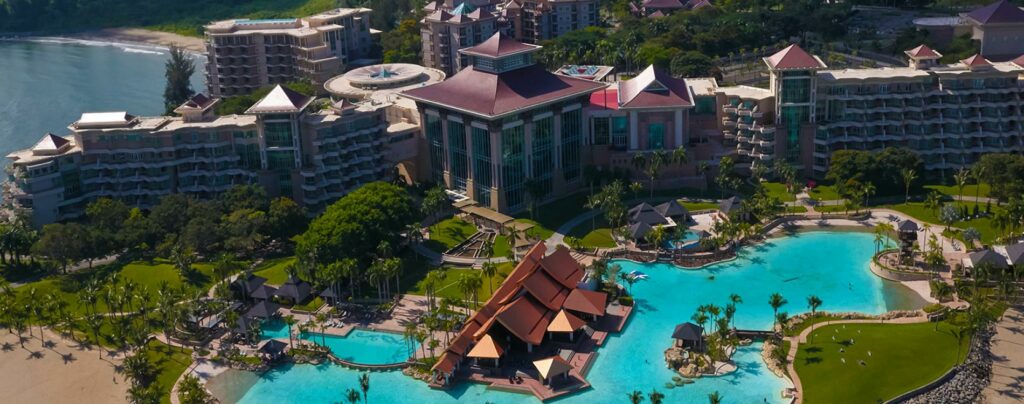
Tourism in Brunei: Hidden Gems and Cultural Encounters
Brunei’s tourism industry has gradually gained momentum, enticing visitors with its pristine beauty and authentic cultural experiences. The nation boasts a range of unique attractions that have piqued the interest of travelers looking for off-the-beaten-path destinations. Among these captivating sites are the Kampong Ayer water village, the majestic Sultan Omar Ali Saifuddien Mosque, and the awe-inspiring Ulu Temburong National Park. Each attraction promises unforgettable experiences that glimpse Brunei’s rich history and natural wonders.
The Kampong Ayer water village is a testament to Brunei’s cultural heritage. Nestled along the banks of the Brunei River, this stilted village presents a fascinating blend of tradition and modernity, with wooden houses standing above the water on stilts, interconnected by a maze of wooden walkways. Visitors can immerse themselves in the local way of life, interact with friendly villagers, and gain insight into the traditional practices that have withstood the test of time.
The Sultan Omar Ali Saifuddien Mosque is an iconic symbol of Brunei’s Islamic faith and architectural brilliance. Its gleaming golden dome and intricate marble façade exude grandeur, making it a sight to behold. Within its walls, visitors can explore the exquisite craftsmanship of the interior, adorned with lavish carpets, crystal chandeliers, and ornate Islamic designs. The mosque’s serene surroundings, with its reflective lagoon, add to the spiritual ambiance, offering a serene escape from the hustle and bustle of modern life.
For nature enthusiasts seeking adventure, Ulu Temburong National Park beckons with its untouched wilderness. Accessible only by longboat, this pristine rainforest is a haven for biodiversity, housing a rich assortment of flora and fauna. Trekking through its dense foliage, visitors may spot elusive wildlife, including hornbills, probosci’s monkeys, and even the rare Bornean orangutans swinging from the treetops. The park also presents an opportunity for thrilling activities such as canopy walks and river rafting, offering a unique and immersive encounter with Brunei’s natural wonders.
As Brunei embraces its identity as an emerging tourism destination, these remarkable attractions charm and captivate travelers from around the globe. Brunei’s commitment to preserving its cultural heritage and pristine environment poises the nation to shine brightly on the world stage, inviting adventurers and culture enthusiasts to embark on an extraordinary journey of discovery.
Challenges and Aspirations: Navigating Brunei’s Path to the Future
Despite its notable successes, Brunei confronts various challenges on its journey toward a prosperous future. The nation actively strives to balance preserving its cherished traditions and embracing modernity to meet its people’s and society’s evolving needs. Sustainable growth and economic diversification remain pressing imperatives for Brunei’s continuous development.
Preserving cultural heritage while keeping pace with technological advancements presents a complex challenge. Brunei’s commitment to its traditional values, deeply rooted in the Islamic faith, is a source of strength and identity for its citizens. However, as the world rapidly changes, integrating modern practices without compromising cultural integrity requires a delicate and thoughtful approach.
Diversifying the economy is another pivotal aspect of Brunei’s development strategy. Historically reliant on its abundant oil and gas reserves, the nation recognizes the importance of reducing dependence on these finite resources. Brunei aims to create a more robust and sustainable economy that can withstand fluctuations in global energy markets by promoting innovation, entrepreneurship, and investment in various sectors.
Sustainable growth is paramount for Brunei to ensure a greener and cleaner future. Environmental conservation is a top priority as a nation with stunning natural beauty and diverse ecosystems. Implementing sustainable practices in the energy, agriculture, and tourism industries is crucial for minimizing the ecological impact and preserving pristine landscapes for future generations.
Additionally, Brunei’s commitment to providing comprehensive social welfare to its citizens poses challenges in maintaining long-term financial sustainability. While the welfare system has contributed to a high standard of living, ensuring its continued effectiveness amidst changing demographic and economic conditions requires careful planning and resource allocation.
Despite these challenges, Brunei remains resolute in pursuing progress and growth. The nation seeks innovative solutions, fosters international collaborations, and embraces forward-thinking policies to overcome obstacles and shape a brighter future. With a steadfast determination to strike the right balance between tradition and modernity, diversifying its economy, and championing sustainability, Brunei continues to make strides towards a promising and resilient tomorrow.
Conclusion
With its captivating cultural heritage, commitment to Islamic values, and prudent economic policies, Brunei remains an intriguing destination in Southeast Asia. As the nation continues to navigate its path to the future, it does so with a focus on preserving its natural splendor and ensuring the prosperity and well-being of its people. With a blend of tradition and progress, Brunei is a shining example of a modern nation firmly rooted in its rich history.
Watch Video
FAQ about Brunei
1. Where is Brunei located?
Brunei, officially known as Brunei Darussalam, is located on the northern coast of the island of Borneo in Southeast Asia. It is surrounded by the Malaysian state of Sarawak, except its coastline facing the South China Sea.
2. What is the capital city of Brunei?
The capital city of Brunei is Bandar Seri Begawan. It is the largest city in the country and serves as the political, economic, and cultural center of Brunei.
3. What is the official religion of Brunei?
Brunei declares Islam as its official religion, and most of its population practices the Islamic faith. The country’s legal system derives its foundation from Islamic law, known as Sharia.
4. Who is the ruler of Brunei?
As last update in September 2021, Sultan Hassanal Bolkiah is the ruler of Brunei. He has been the Sultan since October 4, 1967, making him one of the longest-reigning monarchs in the world.
5. What is the economy of Brunei based?
Brunei has a well-developed economy, primarily supported by its vast oil and natural gas reserves. The country is one of the world’s largest liquefied natural gas (LNG) exporters. However, in recent years, the government has been working to diversify the economy to reduce dependence on oil and gas.
6. Is Brunei a wealthy country?
Yes, Brunei is considered one of the wealthiest countries in the world. Its prosperity is mainly due to its abundant natural resources, particularly oil and natural gas. The government’s social welfare programs also contribute to its citizens’ high standard of living.
7. Is Brunei a member of the United Nations?
Yes, Brunei became a United Nations (UN) member on September 21, 1984, following its independence from the United Kingdom.
8. What is the climate like in Brunei?
Brunei has a tropical climate characterized by high temperatures and humidity throughout the year. The country experiences two main seasons: the dry season, which runs from December to April, and the rainy season, which occurs from May to November.
9. Is Brunei a tourist destination?
Brunei is gradually developing its tourism industry, and while it might not be as popular as some neighboring countries, it does offer unique attractions for visitors. The Sultan Omar Ali Saifuddien Mosque, Kampong Ayer water village, and Ulu Temburong National Park are some highlights for tourists seeking cultural encounters and natural beauty.
10. Is alcohol allowed in Brunei?
Brunei strictly interprets Islamic law, thus prohibiting the sale and consumption of alcohol for Muslims. Non-Muslims can bring limited alcohol into the country for personal use. However, some regulations restrict its sale and distribution to non-Muslims.
